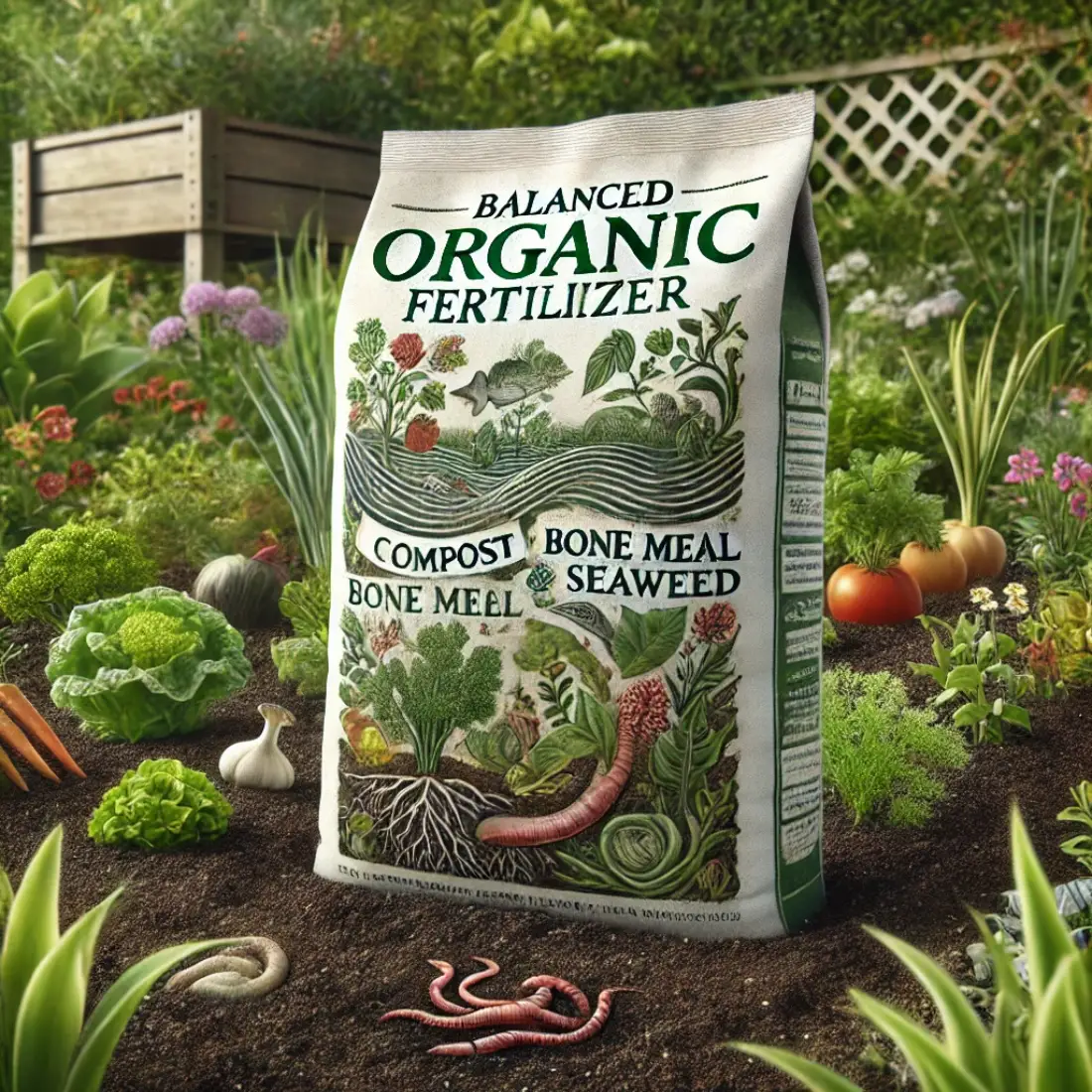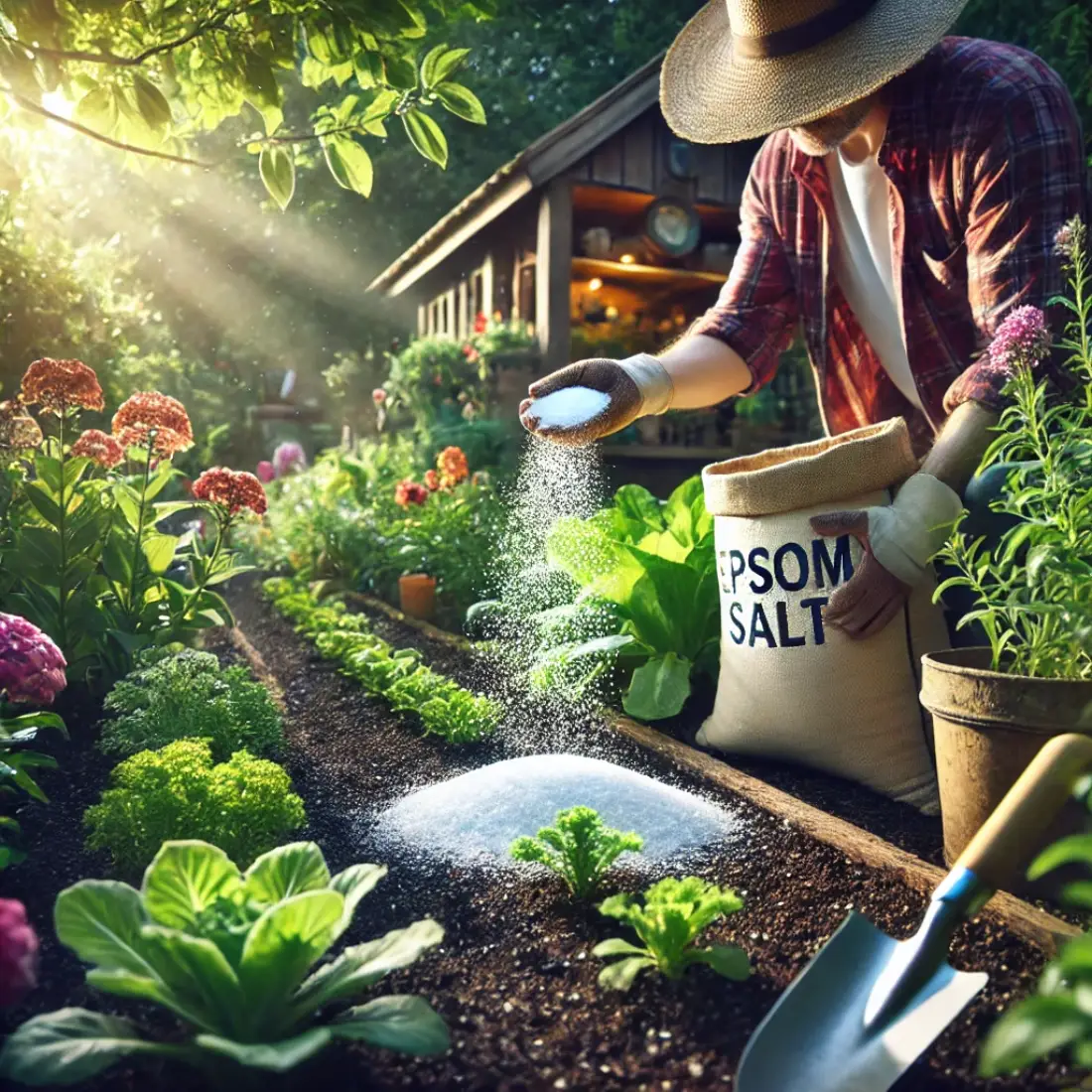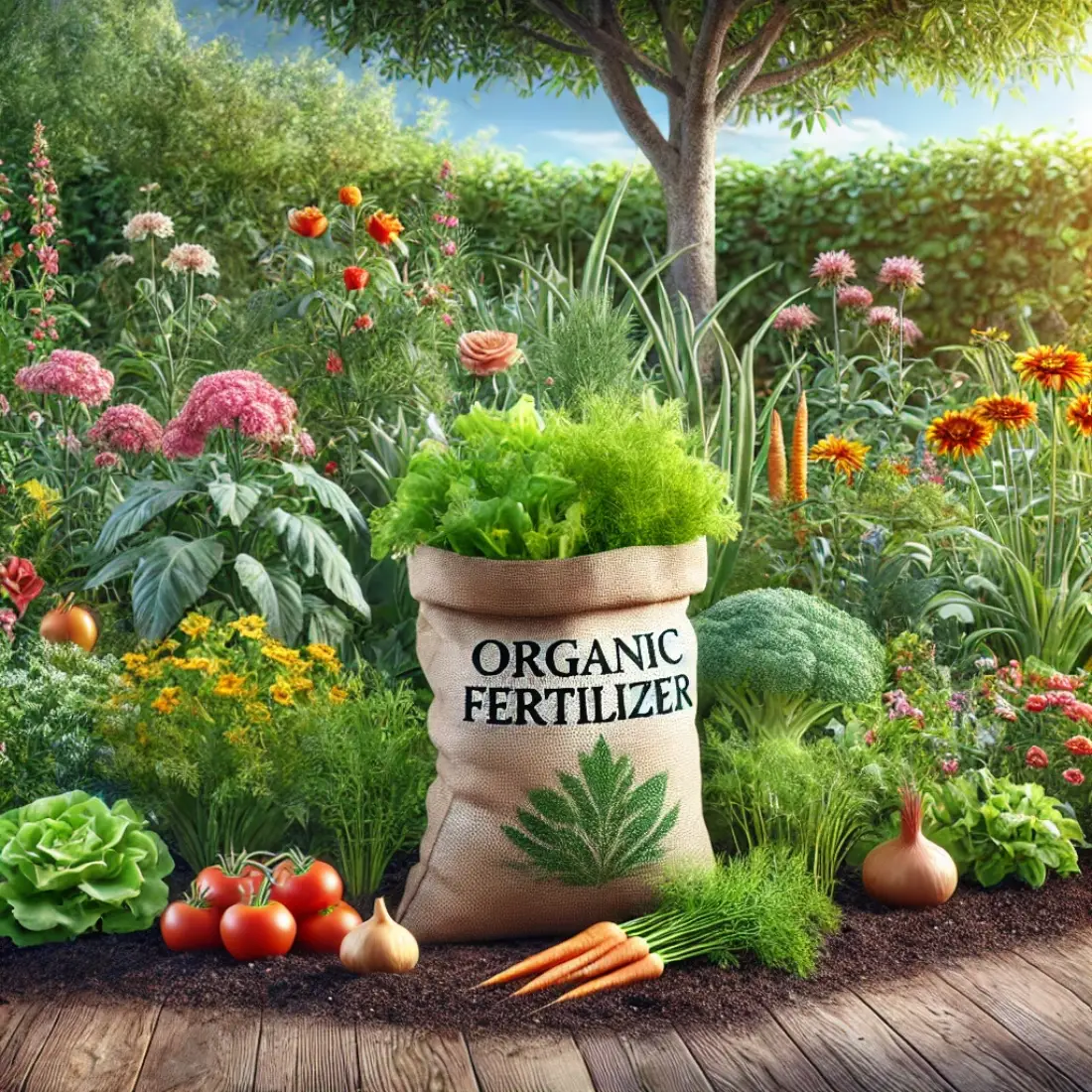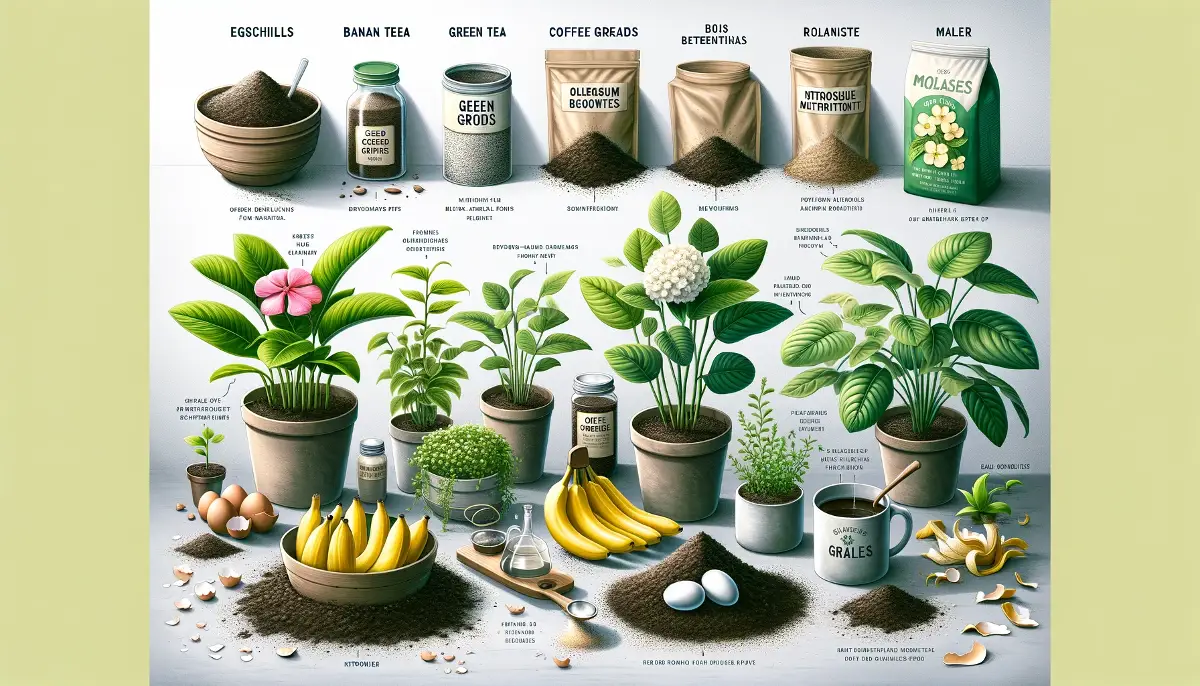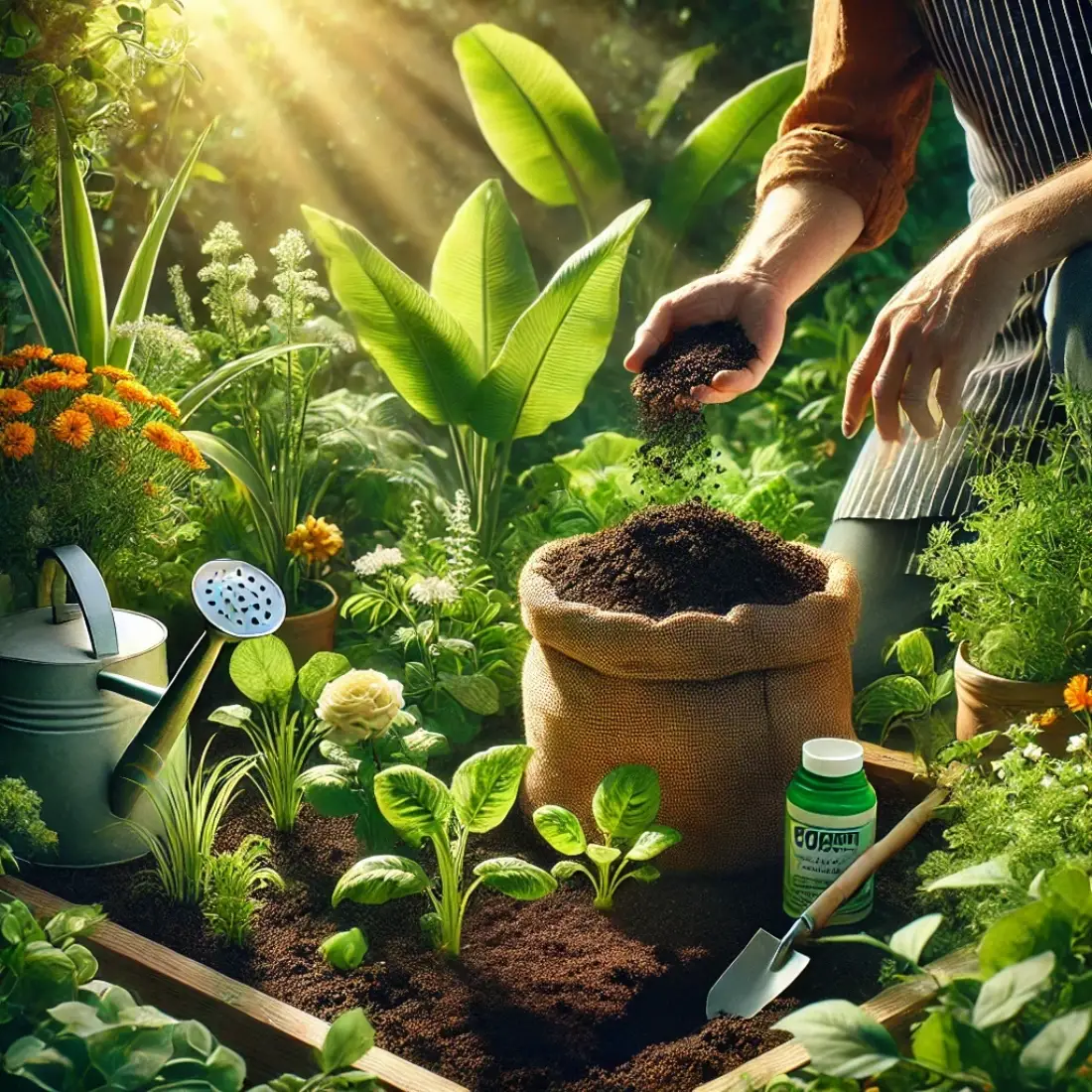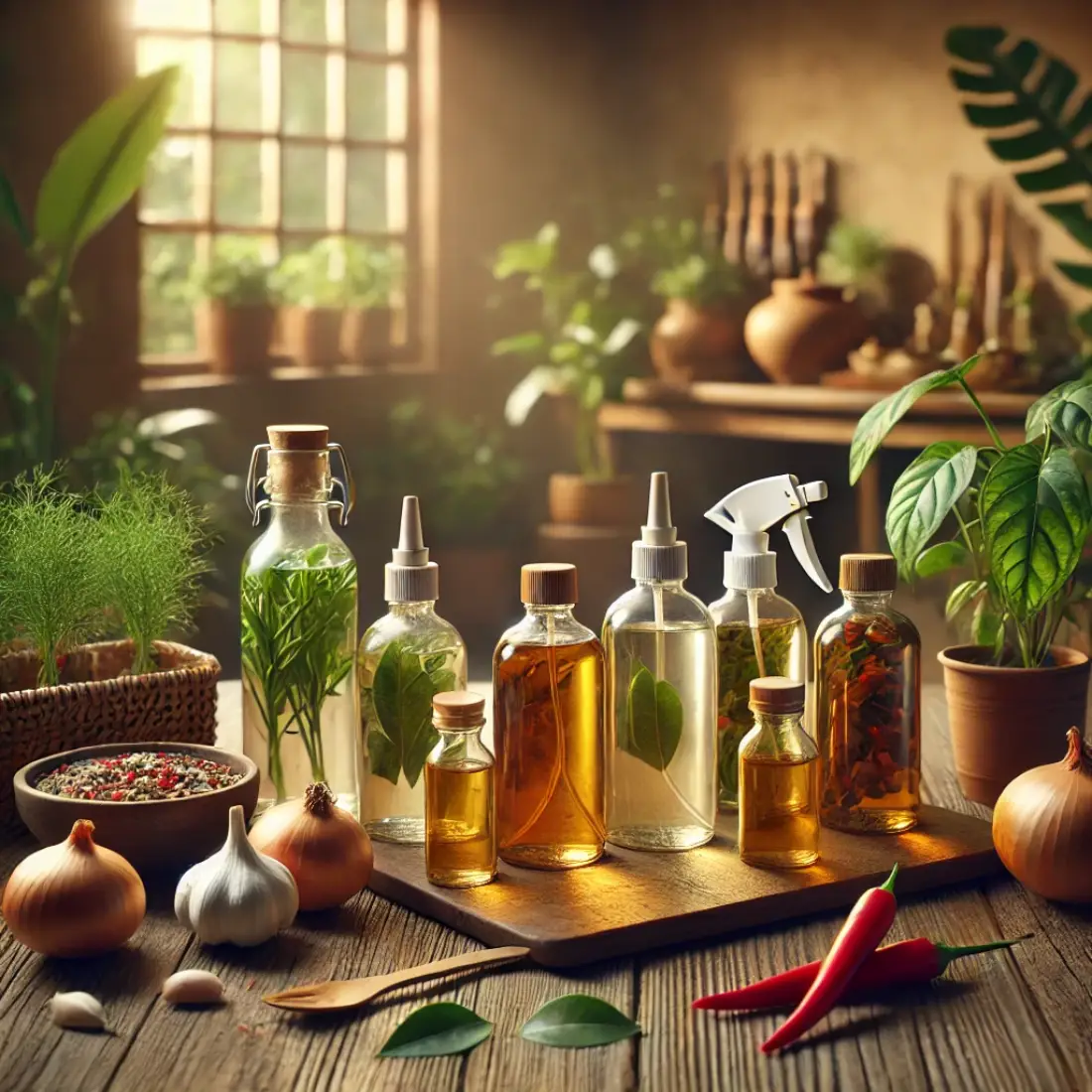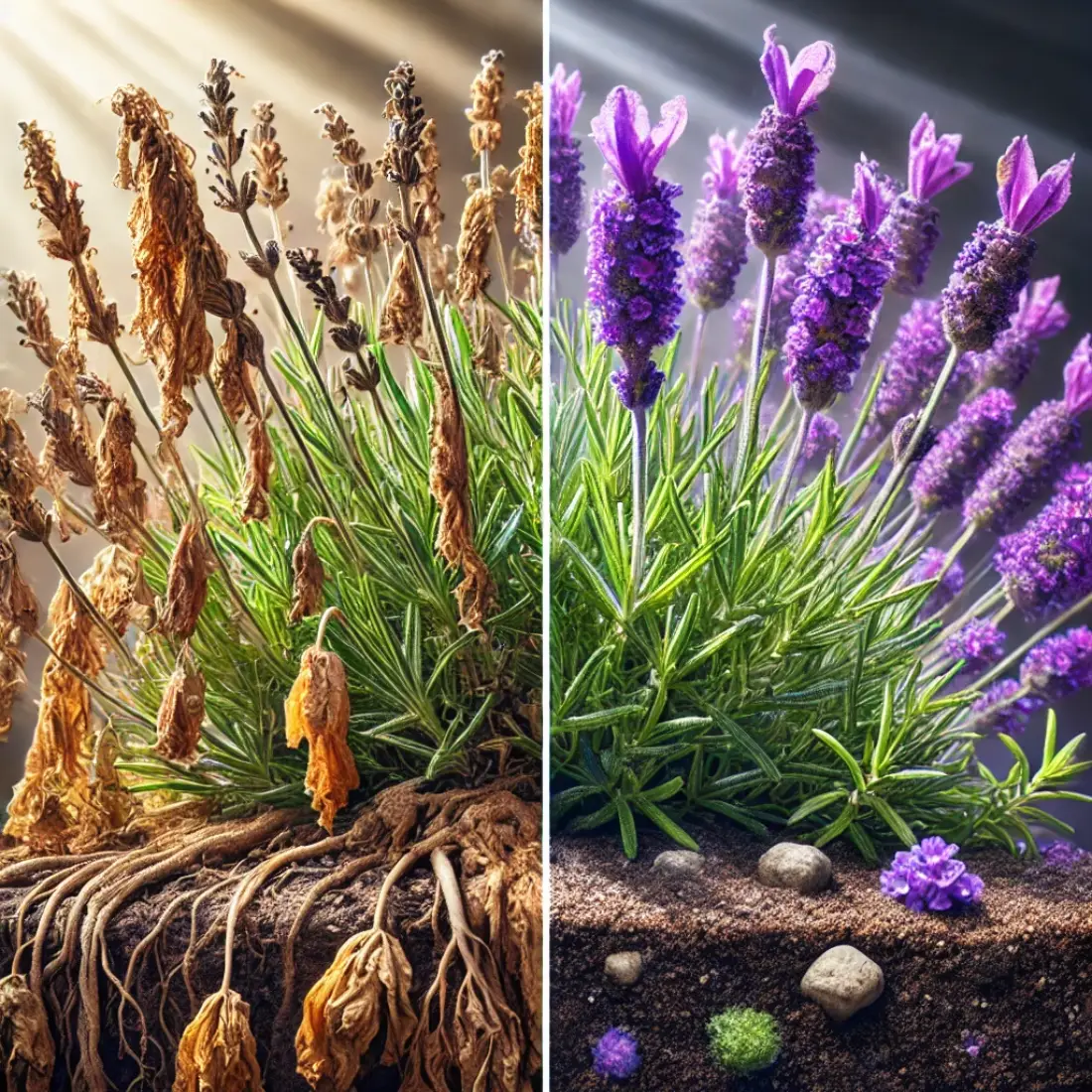Compost tea is a nutrient-rich liquid made by steeping compost in water. It’s popular in organic gardening for boosting plant growth and improving soil health. This tea provides essential nutrients and beneficial microbes, enhancing soil structure and fertility.
Using compost tea regularly strengthens plants, making them more resistant to diseases and pests. It can be applied as a foliar spray or soil drench, offering a natural alternative to chemical fertilizers.
- Compost tea is a liquid fertilizer made by steeping compost in water, rich in nutrients and beneficial microbes.
- It enhances plant growth and soil health, promoting stronger and more resilient plants.
- Compost tea can be applied as a foliar spray or a soil drench, providing flexibility in usage.
- Regular use helps improve soil structure, increases water retention, and boosts microbial activity.
- It serves as a natural alternative to chemical fertilizers and pesticides, supporting sustainable gardening practices.
- Compost tea helps plants become more resistant to diseases and pests, reducing the need for chemical interventions.
What is Compost Tea?
Compost tea is a nutrient-dense liquid derived from soaking compost in water, allowing beneficial microorganisms and soluble nutrients to leach into the solution. This organic elixir is prized in gardening and farming for its ability to promote plant health and enhance soil fertility.
There are two primary types of compost tea: aerated and non-aerated. Aerated compost tea involves actively oxygenating the mixture to boost microbial activity, while non-aerated compost tea relies on natural processes without added oxygen. Both types aim to extract the maximum amount of nutrients and beneficial organisms from the compost.
When applied to plants, compost tea provides essential nutrients like nitrogen, phosphorus, and potassium, along with a diverse array of microorganisms that support soil health.
How to Make Compost Tea
Gather Materials: You’ll need high-quality compost, non-chlorinated water, a brewing container, an air pump with airstone (for aerated tea), and optional additives like molasses, kelp, or fish hydrolysate.
Prepare the Compost: Fill a mesh bag or strainer with about one part compost for every five parts of water. This keeps solid particles contained while allowing nutrients and microbes to infuse the water.
Fill the Container: Add the compost bag to the container and fill it with non-chlorinated water. Ensure the compost is fully submerged.
Add Optional Additives: Mix in unsulfured molasses (1-2 tablespoons per gallon) to feed microbes, and any other chosen additives to enhance the tea’s nutrient profile.
Aerate the Mixture: For aerated compost tea, insert the airstone connected to the air pump into the container. Aerate for 24-48 hours, keeping the mixture oxygenated to promote beneficial microbial growth.
Stir Regularly: If not using an air pump, stir the mixture vigorously several times a day to incorporate oxygen.
Strain and Use: After brewing, remove the compost bag and strain the tea through a fine mesh to remove solids. The tea is now ready to use.
Application Methods for Compost Tea
Foliar Spray:
- Preparation: Dilute the compost tea with water in a 1:1 ratio.
- Application: Using a spray bottle or garden sprayer, apply the tea directly to the plant leaves until they are thoroughly wet.
- Benefits: Foliar spraying allows plants to absorb nutrients quickly through their leaves, promoting rapid growth and boosting immunity.
Soil Drench:
- Preparation: Compost tea can be used full-strength or diluted depending on plant needs.
- Application: Pour the tea around the base of plants, allowing it to soak into the soil and reach the root zone.
- Benefits: Soil drenching enriches the soil, enhancing microbial activity and providing long-term nutrition for plant roots.
Best Practices:
- Apply compost tea early in the morning or late in the afternoon to avoid leaf burn from the sun.
- Use within four hours of brewing for maximum effectiveness.
- Repeat applications every two to four weeks for optimal results.
Safety and Storage of Compost Tea
Safe Handling Practices:
- Wear gloves and wash hands after handling compost tea.
- Avoid contact with eyes and mouth.
Proper Storage Methods:
- Use compost tea immediately after brewing for best results.
- If storage is necessary, keep it in a cool, dark place and use within 24 hours.
Shelf Life:
- Compost tea is best used fresh. The microbial activity diminishes over time, reducing its effectiveness.
- Refrigerate if necessary, but always aim to use it as soon as possible.
Benefits of Compost Tea
- Enhanced Plant Growth: Compost tea is packed with essential nutrients like nitrogen, phosphorus, and potassium, which are vital for plant growth. These nutrients are readily available in liquid form, making it easier for plants to absorb them through their roots and leaves. This results in healthier, more vigorous plants with improved growth rates and higher yields.
- Improved Soil Health: Applying compost tea to the soil introduces beneficial microorganisms, such as bacteria, fungi, and protozoa. These microbes play a crucial role in breaking down organic matter, improving soil structure, and increasing nutrient availability. Healthier soil retains moisture better, supports root development, and reduces the need for chemical fertilizers.
- Increased Disease Resistance: The beneficial microbes in compost tea help plants build stronger immune systems. They outcompete harmful pathogens, reducing the incidence of diseases like root rot, powdery mildew, and blight. This natural disease resistance minimizes the need for chemical pesticides and fosters a healthier growing environment.
- Pest Management: Regular application of compost tea can help deter pests by creating a robust and resilient plant environment. Healthy plants are less susceptible to pest attacks, and the beneficial microbes can help keep pest populations in check, reducing the need for chemical interventions.
- Sustainable and Eco-Friendly: Compost tea is an environmentally friendly alternative to synthetic fertilizers and pesticides. It recycles nutrients from compost and reduces the reliance on chemical inputs, promoting sustainable gardening practices. Using compost tea supports organic farming and helps protect the ecosystem by minimizing chemical runoff and soil degradation.
Plants That Love Compost Tea
Many plants thrive with the application of compost tea, benefiting from the nutrient boost and microbial support it provides.
Vegetables such as tomatoes, peppers, lettuce, cucumbers, and beans love compost tea. Tomatoes and peppers see enhanced growth and improved fruit yield, while lettuce grows faster and develops more vibrant leaves. Cucumbers experience increased flowering and fruiting, and beans produce stronger plants with more abundant pods.
Herbs like basil, parsley, thyme, cilantro, and mint also benefit greatly from compost tea. Basil grows more vigorously and develops a more intense flavor. Parsley and thyme show healthier, lush foliage and improved disease resistance. Cilantro grows faster and has more aromatic leaves, and mint becomes more robust with a stronger aroma.
Flowers including roses, marigolds, petunias, sunflowers, and geraniums respond well to compost tea. Roses see improved bloom size and color, along with better resistance to diseases like black spot and powdery mildew. Marigolds have enhanced flowering and increased pest deterrent properties. Petunias produce more abundant and vibrant blooms, sunflowers grow taller with larger flowers, and geraniums show increased flowering and overall plant health.
Fruits such as strawberries, blueberries, apples, citrus trees, and grapes thrive with compost tea. Strawberries become larger and juicier with improved flavor. Blueberries produce healthier plants and better fruit yields, while apples experience improved growth and fruit quality. Citrus trees benefit from more robust growth and better fruit yield, and grapes develop healthier vines with more abundant fruit clusters.
Houseplants like ferns, spider plants, pothos, peace lilies, and aloe vera also love compost tea. Ferns develop lush, green fronds with improved vigor, while spider plants grow faster and produce more “babies.” Pothos display faster growth and more vibrant leaves, peace lilies have healthier plants with more frequent blooms, and aloe vera shows robust growth and improved health.
FAQs About Compost Tea
How often should I apply compost tea to my plants?
Applying compost tea every two to four weeks is generally recommended. This frequency helps maintain soil health and provides consistent nutrient boosts to your plants.
Can compost tea burn plants?
When used correctly, compost tea is unlikely to burn plants. However, always dilute the tea, especially when applying as a foliar spray, to avoid potential leaf burn.
What is the best time of day to apply compost tea?
The best time to apply compost tea is early in the morning or late in the afternoon. This avoids the heat of the day, reducing the risk of leaf burn and ensuring better absorption.
Can I use compost tea on all types of plants?
Yes, compost tea can be used on a wide variety of plants, including vegetables, herbs, flowers, fruits, and even houseplants. Each plant can benefit from the nutrients and microbes in compost tea.
How long does it take to brew compost tea?
Brewing compost tea typically takes 24 to 48 hours. This time frame allows beneficial microbes to multiply and the nutrients to leach into the water.
Can I store compost tea for later use?
Compost tea is best used fresh, ideally within four hours of brewing. If necessary, it can be stored in a cool, dark place for up to 24 hours, but its effectiveness diminishes over time.
Do I need special equipment to make compost tea?
Basic equipment includes a container, non-chlorinated water, and a mesh bag for the compost. For aerated compost tea, you will need an air pump and airstone to oxygenate the mixture.
Can I make compost tea without an air pump?
Yes, you can make non-aerated compost tea by simply soaking compost in water and stirring the mixture several times a day. However, aerated compost tea is generally more effective due to higher microbial activity.
What additives can I use to enhance compost tea?
Additives like unsulfured molasses, kelp or seaweed extract, and fish hydrolysate can boost the nutrient content and microbial diversity of your compost tea.
Is compost tea safe for edible plants?
Yes, compost tea is safe for edible plants. It provides a natural and organic way to boost plant health and improve yields without harmful chemicals.


